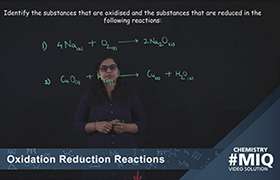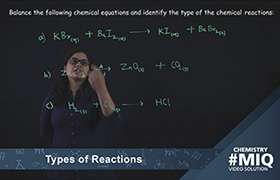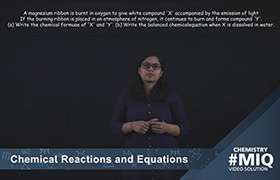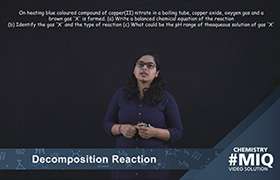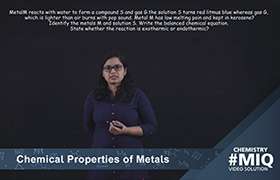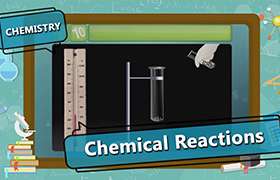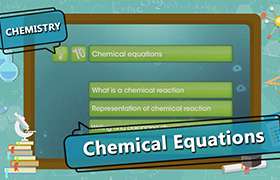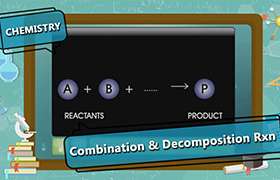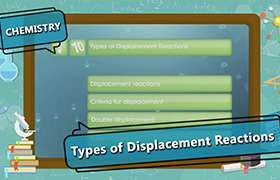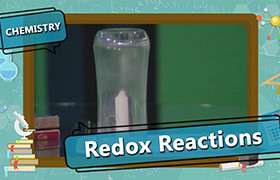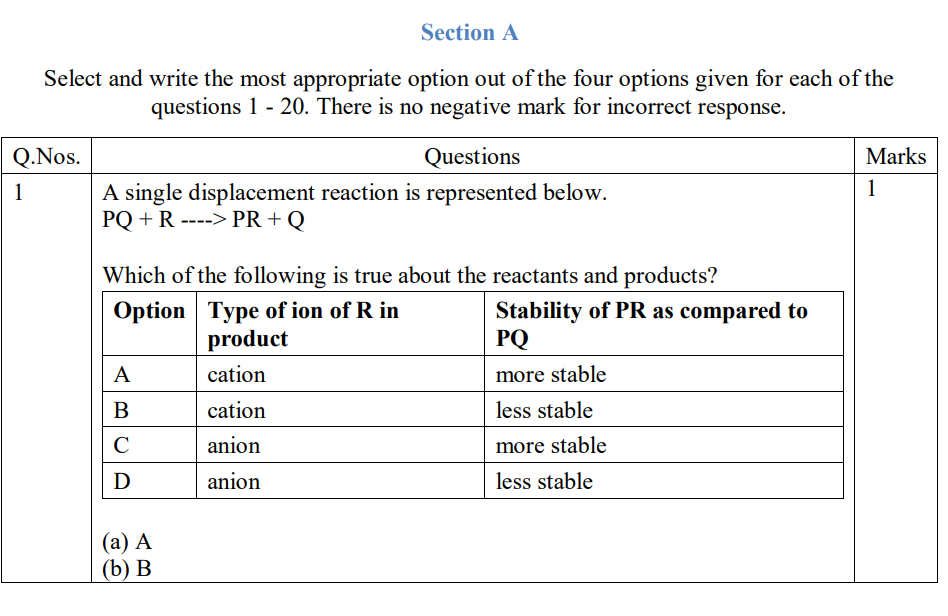CBSE Class 10 Answered
What is chemical reation and how and why does it take place?
Asked by | 25 Mar, 2008, 04:18: PM
Chemical reactions occur because the products of the reaction have less energy than the reactants. (Drive toward less energy). These reactions release energy into the environment
Chemical reactions also occur because the products are more random (less ordered) than the reactant .
Taking the macroscopic and view that chemistry involves the transformation of bulk substance, we can confidently state that a chemical reaction can feasibly occur when the Gibbs free energy of the system decreases, ie. when DG is negative or less than zero, DG < 0.00.
The Gibbs function is: DG = DH – T DS
D (delta) means "change in" DH is the change in enthalpy or heat equivalent T is the thermodynamic temperature, the temperature in Kelvin DS is the change in entropy or "dispersion of energy", where gases are more dispersed and have greater entropy than liquids, etc. Reactions can be exothermic, –DH, or endothermic, +DH Reactions [the local system] can decrease in entropy, –DS, or they can increase in entropy, +DS For a reaction to occur the Gibbs free energy must be negative: G < 0.00
DH , DS
& DG
refer to standard conditions (1.0 atm) and temperature (298K)
DH°, DS° & DG° refer to standard conditions but non-standard temperatures
Answered by | 10 Jun, 2008, 05:10: AM
Application Videos
Concept Videos
CBSE 10 - Chemistry
Asked by sagarmishra | 04 Mar, 2024, 09:50: AM
CBSE 10 - Chemistry
Asked by 09.10bjanvhijadhav | 02 Mar, 2024, 08:22: AM
CBSE 10 - Chemistry
Asked by prassanna.j | 01 Mar, 2024, 11:59: AM
CBSE 10 - Chemistry
Asked by yadavparmit83 | 01 Dec, 2023, 06:16: AM
CBSE 10 - Chemistry
Asked by susrisangita792 | 17 Nov, 2023, 08:27: PM
CBSE 10 - Chemistry
Asked by ramjilal01071988 | 14 Oct, 2023, 08:42: PM
CBSE 10 - Chemistry
Asked by dikshantnaik1008 | 21 Jul, 2023, 11:47: AM
CBSE 10 - Chemistry
Asked by susrisangita792 | 07 Jun, 2023, 11:54: AM
CBSE 10 - Chemistry
Asked by shoaibhakak41 | 18 Jan, 2023, 02:17: PM
CBSE 10 - Chemistry
Asked by nehashekh291 | 03 Jan, 2023, 03:11: PM

